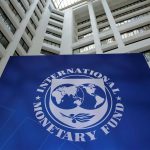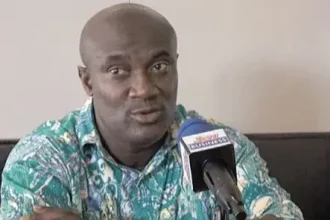Stakeholders at a roundtable on addressing plastic waste have reiterated the need to sensitise the public and create awareness of plastic pollution.
They argued that plastics were not evil as claimed, but rather their poor disposal made them harmful to the environment.
The stakeholders at the meeting organised by the Blue Skies Factory and Juice Bar Ghana, under their Fresh Produce Impact Hub Project (FRESHPACT), said there was a need for a collective effort to sensitise the public and cause a behavioural change to create a positive impact on the disposal of plastic waste.
The roundtable at the factory’s headquarters in Doboro, near Nsawam in the Eastern Region last Friday, was to discuss how to resolve challenges posed by plastic waste in the country.
The solutions presented at the discussion are to be tested in Blue Skies’ three-year FRESHPACT project, which is to mitigate plastic pollution in the agri-food sector in the country.
The meeting brought together representatives from the University of Northampton, the Ministry of Environment, Science, Technology and Innovation (MESTI), the Council of Scientific and Industrial Research — Science Technology Policy Research Institute (CSIR-STEPRI) and recycling companies.
Transformative solutions
The Head of Sustainability of Blues Skies, Simon Derrick, said one of the challenges that needed to be addressed was the issue of plastic waste disposal which had many impacts, especially on health and climate.
He stated that his outfit had put together the FRESHPACT project, which was in its second year, to bring together industries and research partners to find transformative solutions to the issue.
“This project is very important because it will help us to connect the dots and draw solutions on how to tackle not just plastics but other issues that have become a barrier to biodiversity,” Mr Derrick said.
An Associate Professor in International Sustainable Development Law at the University of Northampton, Prof. Ebenezer Laryea, said the country dealt with a lot of plastic waste because of the sheer volumes of sachet water it consumed annually.
The improper disposal of plastic waste, he added, had a negative impact on the marine, social and economic aspects of the country’s development.
Prof. Laryea said, for instance, the disposal of plastics into the sea destroyed marine life and made the livelihood of fisherfolk difficult, while the improper disposal caused flooding and had negative health impacts on citizens, which affected their social and economic lives.
Improved recycling
A Research Scientist at CSIR-STEPRI, Dr Portia Adade Williams, said the message of sensitisation should be on the improvement of recycling.
She noted that in creating awareness of recycling plastic waste, citizens should be educated on segregating the plastic waste and be provided with labelled bins at vantage points to make it easier for collection and recycling.
“Since we can’t reduce the usage of plastic, especially sachet water rubbers, then the message of sensitisation should be on how we can improve its sensitisation and recycling through segregation of waste,” she said.
The Deputy Director of MESTI, Nashiru Salifu, commended Blue Skies for the project, saying it was strategically aligned with government policy.
He stressed the need for a collaborative effort to support the government’s policies on the recycling of plastic waste.
“When we call for solutions, it is like looking for a quicker way of handling a very critical problem that might require long-term investment, and so while we look at it, let’s look at how we will invest long-term into it,” Mr Salifu said.
He added that plastic recycling could better be managed when stakeholders came together and invested in the small and medium enterprises that were into recycling.
















